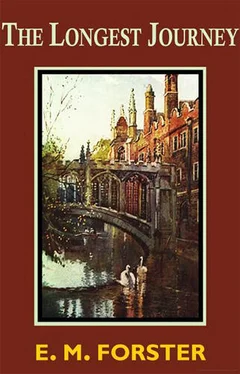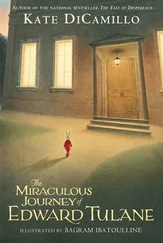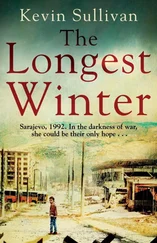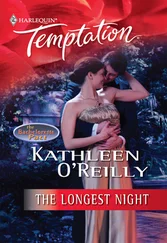Edward Forster - The Longest Journey
Здесь есть возможность читать онлайн «Edward Forster - The Longest Journey» весь текст электронной книги совершенно бесплатно (целиком полную версию без сокращений). В некоторых случаях можно слушать аудио, скачать через торрент в формате fb2 и присутствует краткое содержание. Жанр: Классическая проза, на английском языке. Описание произведения, (предисловие) а так же отзывы посетителей доступны на портале библиотеки ЛибКат.
- Название:The Longest Journey
- Автор:
- Жанр:
- Год:неизвестен
- ISBN:нет данных
- Рейтинг книги:5 / 5. Голосов: 1
-
Избранное:Добавить в избранное
- Отзывы:
-
Ваша оценка:
- 100
- 1
- 2
- 3
- 4
- 5
The Longest Journey: краткое содержание, описание и аннотация
Предлагаем к чтению аннотацию, описание, краткое содержание или предисловие (зависит от того, что написал сам автор книги «The Longest Journey»). Если вы не нашли необходимую информацию о книге — напишите в комментариях, мы постараемся отыскать её.
The Longest Journey — читать онлайн бесплатно полную книгу (весь текст) целиком
Ниже представлен текст книги, разбитый по страницам. Система сохранения места последней прочитанной страницы, позволяет с удобством читать онлайн бесплатно книгу «The Longest Journey», без необходимости каждый раз заново искать на чём Вы остановились. Поставьте закладку, и сможете в любой момент перейти на страницу, на которой закончили чтение.
Интервал:
Закладка:
"Fight the good. Fight with. All thy. Might."
They would be across from the chapel soon.
"Your book, sir?"
"Thank you, sir—yes."
"Why!" cried the young man—"why, it's 'What We Want'! At least the binding's exactly the same."
"It's called 'Essays,'" said Ansell.
"Then that's it. Mrs. Failing, you see, she wouldn't call it that, because three W's, you see, in a row, she said, are vulgar, and sound like Tolstoy, if you've heard of him."
Ansell confessed to an acquaintance, and then said, "Do you think 'What We Want' vulgar?" He was not at all interested, but he desired to escape from the atmosphere of pugilistic courtesy, more painful to him than blows themselves.
"It IS the same book," said the other—"same title, same binding." He weighed it like a brick in his muddy hands.
"Open it to see if the inside corresponds," said Ansell, swallowing a laugh and a little more blood with it.
With a liberal allowance of thumb-marks, he turned the pages over and read, "'the rural silence that is not a poet's luxury but a practical need for all men.' Yes, it is the same book." Smiling pleasantly over the discovery, he handed it back to the owner.
"And is it true?"
"I beg your pardon?"
"Is it true that rural silence is a practical need?"
"Don't ask me!"
"Have you ever tried it?"
"What?"
"Rural silence."
"A field with no noise in it, I suppose you mean. I don't understand."
Ansell smiled, but a slight fire in the man's eye checked him. After all, this was a person who could knock one down. Moreover, there was no reason why he should be teased. He had it in him to retort "No. Why?" He was not stupid in essentials. He was irritable—in Ansell's eyes a frequent sign of grace. Sitting down on the upturned seat, he remarked, "I like the book in many ways. I don't think 'What We Want' would have been a vulgar title. But I don't intend to spoil myself on the chance of mending the world, which is what the creed amounts to. Nor am I keen on rural silences."
"Curse!" he said thoughtfully, sucking at an empty pipe.
"Tobacco?"
"Please."
"Rickie's is invariably—filthy."
"Who says I know Rickie?"
"Well, you know his aunt. It's a possible link. Be gentle with Rickie. Don't knock him down if he doesn't think it's a nice morning."
The other was silent.
"Do you know him well?"
"Kind of." He was not inclined to talk. The wish to smoke was very violent in him, and Ansell noticed how he gazed at the wreaths that ascended from bowl and stem, and how, when the stem was in his mouth, he bit it. He gave the idea of an animal with just enough soul to contemplate its own bliss. United with refinement, such a type was common in Greece. It is not common today, and Ansell was surprised to find it in a friend of Rickie's. Rickie, if he could even "kind of know" such a creature, must be stirring in his grave.
"Do you know his wife too?"
"Oh yes. In a way I know Agnes. But thank you for this tobacco. Last night I nearly died. I have no money."
"Take the whole pouch—do."
After a moment's hesitation he did. "Fight the good" had scarcely ended, so quickly had their intimacy grown.
"I suppose you're a friend of Rickie's?"
Ansell was tempted to reply, "I don't know him at all." But it seemed no moment for the severer truths, so he said, "I knew him well at Cambridge, but I have seen very little of him since."
"Is it true that his baby was lame?"
"I believe so."
His teeth closed on his pipe. Chapel was over. The organist was prancing through the voluntary, and the first ripple of boys had already reached Dunwood House. In a few minutes the masters would be here too, and Ansell, who was becoming interested, hurried the conversation forward.
"Have you come far?"
"From Wiltshire. Do you know Wiltshire?" And for the first time there came into his face the shadow of a sentiment, the passing tribute to some mystery. "It's a good country. I live in one of the finest valleys out of Salisbury Plain. I mean, I lived."
"Have you been dismissed from Cadover, without a penny in your pocket?"
He was alarmed at this. Such knowledge seemed simply diabolical. Ansell explained that if his boots were chalky, if his clothes had obviously been slept in, if he knew Mrs. Failing, if he knew Wiltshire, and if he could buy no tobacco—then the deduction was possible. "You do just attend," he murmured.
The house was filling with boys, and Ansell saw, to his regret, the head of Agnes over the thuyia hedge that separated the small front garden from the side lawn where he was sitting. After a few minutes it was followed by the heads of Rickie and Mr. Pembroke. All the heads were turned the other way. But they would find his card in the hall, and if the man had left any message they would find that too. "What are you?" he demanded. "Who are you—your name—I don't care about that. But it interests me to class people, and up to now I have failed with you."
"I—" He stopped. Ansell reflected that there are worse answers. "I really don't know what I am. Used to think I was something special, but strikes me now I feel much like other chaps. Used to look down on the labourers. Used to take for granted I was a gentleman, but really I don't know where I do belong."
"One belongs to the place one sleeps in and to the people one eats with."
"As often as not I sleep out of doors and eat by myself, so that doesn't get you any further."
A silence, akin to poetry, invaded Ansell. Was it only a pose to like this man, or was he really wonderful? He was not romantic, for Romance is a figure with outstretched hands, yearning for the unattainable. Certain figures of the Greeks, to whom we continually return, suggested him a little. One expected nothing of him—no purity of phrase nor swift edged thought. Yet the conviction grew that he had been back somewhere—back to some table of the gods, spread in a field where there is no noise, and that he belonged for ever to the guests with whom he had eaten. Meanwhile he was simple and frank, and what he could tell he would tell to any one. He had not the suburban reticence. Ansell asked him, "Why did Mrs. Failing turn you out of Cadover? I should like to hear that too."
"Because she was tired of me. Because, again, I couldn't keep quiet over the farm hands. I ask you, is it right?" He became incoherent. Ansell caught, "And they grow old—they don't play games—it ends they can't play." An illustration emerged. "Take a kitten—if you fool about with her, she goes on playing well into a cat."
"But Mrs. Failing minded no mice being caught."
"Mice?" said the young man blankly. "What I was going to say is, that some one was jealous of my being at Cadover. I'll mention no names, but I fancy it was Mrs. Silt. I'm sorry for her if it was. Anyhow, she set Mrs. Failing against me. It came on the top of other things—and out I went."
"What did Mrs. Silt, whose name I don't mention, say?"
He looked guilty. "I don't know. Easy enough to find something to say. The point is that she said something. You know, Mr.—I don't know your name, mine's Wonham, but I'm more grateful than I can put it over this tobacco. I mean, you ought to know there is another side to this quarrel. It's wrong, but it's there."
Ansell told him not to be uneasy: he lad already guessed that there might be another side. But he could not make out why Mr. Wonham should have come straight from the aunt to the nephew. They were now sitting on the upturned seat. "What We Want," a good deal shattered, lay between them.
"On account of above-mentioned reasons, there was a row. I don't know—you can guess the style of thing. She wanted to treat me to the colonies, and had up the parson to talk soft-sawder and make out that a boundless continent was the place for a lad like me. I said, 'I can't run up to the Rings without getting tired, nor gallop a horse out of this view without tiring it, so what is the point of a boundless continent?' Then I saw that she was frightened of me, and bluffed a bit more, and in the end I was nipped. She caught me—just like her! when I had nothing on but flannels, and was coming into the house, having licked the Cadchurch team. She stood up in the doorway between those stone pilasters and said, 'No! Never again!' and behind her was Wilbraham, whom I tried to turn out, and the gardener, and poor old Leighton, who hates being hurt. She said, 'There's a hundred pounds for you at the London bank, and as much more in December. Go!' I said, 'Keep your—money, and tell me whose son I am.' I didn't care really. I only said it on the off-chance of hurting her. Sure enough, she caught on to the doorhandle (being lame) and said, 'I can't—I promised—I don't really want to,' and Wilbraham did stare. Then—she's very queer—she burst out laughing, and went for the packet after all, and we heard her laugh through the window as she got it. She rolled it at me down the steps, and she says, 'A leaf out of the eternal comedy for you, Stephen,' or something of that sort. I opened it as I walked down the drive, she laughing always and catching on to the handle of the front door. Of course it wasn't comic at all. But down in the village there were both cricket teams, already a little tight, and the mad plumber shouting 'Rights of Man!' They knew I was turned out. We did have a row, and kept it up too. They daren't touch Wilbraham's windows, but there isn't much glass left up at Cadover. When you start, it's worth going on, but in the end I had to cut. They subscribed a bob here and a bob there, and these are Flea Thompson's Sundays. I sent a line to Leighton not to forward my own things: I don't fancy them. They aren't really mine." He did not mention his great symbolic act, performed, it is to be feared, when he was rather drunk and the friendly policeman was looking the other way. He had cast all his flannels into the little millpond, and then waded himself through the dark cold water to the new clothes on the other side. Some one had flung his pipe and his packet after him. The packet had fallen short. For this reason it was wet when he handed it to Ansell, and ink that had been dry for twenty-three years had begun to run again.
Читать дальшеИнтервал:
Закладка:
Похожие книги на «The Longest Journey»
Представляем Вашему вниманию похожие книги на «The Longest Journey» списком для выбора. Мы отобрали схожую по названию и смыслу литературу в надежде предоставить читателям больше вариантов отыскать новые, интересные, ещё непрочитанные произведения.
Обсуждение, отзывы о книге «The Longest Journey» и просто собственные мнения читателей. Оставьте ваши комментарии, напишите, что Вы думаете о произведении, его смысле или главных героях. Укажите что конкретно понравилось, а что нет, и почему Вы так считаете.












